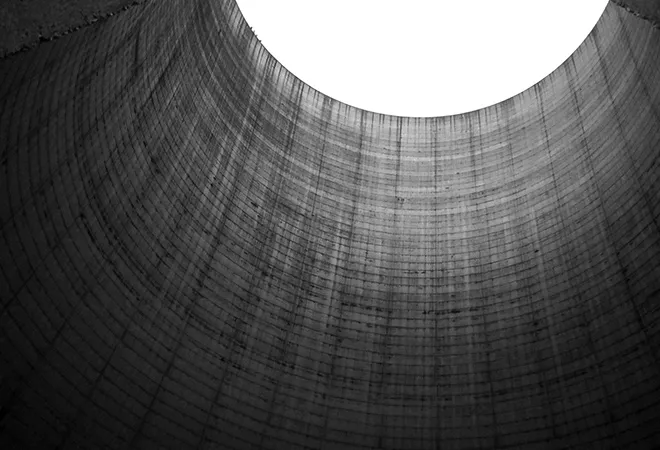In a unanimous decision, India was admitted as the 43rd member to the Australia Group (AG) this month. This comes on the heels of India attaining membership to two other global technology control arrangements, the Wassenaar Arrangement (WA) in December 2017 and the Missile Technology Control Regime (MTCR) in May 2016.
The development is significant because it brings New Delhi one step closer to integrating with the global nonproliferation system. India has been pursuing membership in the four key technology control arrangements that are part of the non-proliferation regime — the fourth being the Nuclear Suppliers Group (NSG) — for several years. But membership to the NSG still eludes India, and it is unlikely that it is any closer today, despite Indian membership in the other three arrangements.
These aforementioned arrangements that India has been pursuing memberships in are essentially informal groupings where members or participating governments, as they are called, work together to harmonise national export controls in order to ensure that export of certain sensitive items do not contribute to the proliferation of weapons of mass destruction (WMD).
But while this has remained the primary objective of these mechanisms, they have also inevitably became tools in the hands of the more powerful states to deny technologies to some countries who were seen as proliferation threats. India had traditionally been a target of these arrangements and, in turn, been fiercely critical of such groups. But the US-India nuclear deal in 2008, which included a waiver from the NSG that permitted India to resume nuclear commerce, transformed India’s relationship with the nuclear non-proliferation regime.
The support to India’s membership within each of these regimes reflects India’s clean track record with regard to non-proliferation. India asserts that its accession to these global technology clubs is “mutually beneficial and further contribute to international security and non-proliferation objectives.” This represents a significant change in Indian attitudes: India had for decades criticised these arrangements.
The US-India nuclear deal in 2008, which included a waiver from the NSG that permitted India to resume nuclear commerce, transformed India’s relationship with the nuclear non-proliferation regime.
But it should be noted that there has been a significant change in the attitude of the non-proliferation order towards India too, from seeing India as a country of proliferation concern to a partner. Members of these regimes accept now that bringing India within the tent is in their own interests both because of India’s growing profile in the technology exports and the overall changing political equations between India and the major powers.
The Australia Group was set up in 1985 specifically “to ensure that exports do not contribute to the development of chemical and biological weapons.” The initial focus of the group was on chemical agents, but by the 1990s, the mandate was expanded to include biological agents as well. The export control lists of the Australia Group are considered fairly comprehensive and go beyond even the scope of the Chemical Weapons Convention (CWC) and BTWC.
India has established a comprehensive export control regime for chemical and biological agents, and this has remained significant given that these materials form a large segment of the dual use items in Indian exports. Harmonising India’s national export control list, called the Special Chemicals, Organisms, Materials, Equipment and Technologies (SCOMET) List, and that of each of the four export control regimes, has been an important technical step that brought India into three of these regimes. While each of the regimes differ in its overall scope and mandate, the export controls and guidelines to be adhered to have similar objectives. Establishing a legally-based and rigorously-enforced national export control system is one of the prerequisites of these regimes.
If India is not celebrating too much, it is because India has not been able to get membership in the group that New Delhi covets most — the NSG. India pushed hard in 2016 for membership when the NSG members met in Seoul, but its application was scuttled by China. India tried again last year, but China did not relent. China’s objections appear to be political: it is unwilling to let India get membership while its ally, Pakistan, is left out. But Pakistan, with its poor proliferation record, is unlikely to be acceptable to the other members of the NSG, which means that India is unlikely to get in either.
Indeed, given the worsening trajectory of the Sino-Indian relationship more broadly, it is likely that China’s opposition to India’s NSG application will only increase. Sino-Indian ties have dramatically worsened since 2016 — partly because of the NSG’s rejection of India’s membership application itself (because both the Indian government and public opinion blamed it on China), but also because of other factors. China also repeatedly opposed Indian efforts to include a Pakistan-based terrorist chief in the UN terrorist sanctions list. And last summer, the two countries almost came to blows over a section of their border, which saw unusually harsh anti-India rhetoric from Chinese officials.
Though both sides have tried to revive their relations, irritants do keep popping up. China, on its side, has been critical of India’s increasingly closer ties with the United States and its allies such as Japan and Australia. All of which means that for the time being at least, India may have little hope of seeing its NSG membership actually achieve success.
This commentary originally appeared in The Diplomat.
The views expressed above belong to the author(s). ORF research and analyses now available on Telegram! Click here to access our curated content — blogs, longforms and interviews.




 PREV
PREV


